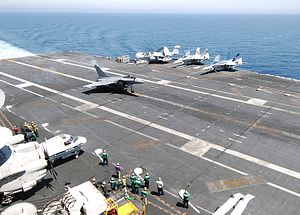A $8.9 billion contract for the purchase of 36 fourth generation Dassault Rafale multirole fighter jets for the Indian Air Force is encountering further delays, with France quietly insisting that the government-to-government contract should be signed prior to the conclusion of a 50 percent offset deal, a French embassy source told Defense News.
“We have concluded multiple discussions with state-owned Defense Research and Development Organisation (DRDO) and other agencies to execute 30 percent offsets in India’s ongoing and futuristic military aerospace programs, but no [offset] deal will be finalized until the final Rafale contract is signed,” the French source said.
As I explained previously:
It was only in April that India and France agreed on a price for the 36 off-the-shelf Dassault Rafale twin-engine aircraft (See: “India to Pay $9 Billion for 36 French Fighter Jets”). An additional contentious issue was the offset clause, which stipulates that France has to invest 50 percent of the contract value as offsets in India “including aeronautics, electronics and micro-electronics technologies,” as I previously noted.
Other stumbling blocks included the delivery date of the aircraft and technical issues including the modification and reconfiguration of the fighter jets to permit the installation of Indian-made and commercial-off-the-shelf and weapons systems, I explained back in January.
The AgustaWestland graft scandal further caused delays, as the The Diplomat reported in May. The scandal led to a review of the deal by the Indian Ministry of Law and Justice. Indian Defense Minister Manohar Parrikar said that the findings of the review will be taken into account when finalizing the intergovernmental agreement.
According to the offset deal, France will invest 30 percent into military aeronautics-related research programs and 20 percent into local production of Rafale components. French defense contractors have also agreed to supply radar and thrust vectoring for missiles technologies, among other things.
France has also offered to help revive work on the indigenously-developed Kaveri gas turbine jet engine for the Tejas Light Combat Aircraft (LCA). The LCA Mark-I variant of the Tejas is currently powered by a General Electric F404-GE-IN20 turbofan engine. There have also been discussions of a possible Indian-Swedish joint venture and fitting the fighter jet with the more powerful General Electric F414-GE-IN56 engine.
“We have detailed discussions with the French teams to revive [the] Kaveri engine project and it is now for MoD to take a final call,” a DRDO scientist told Defense News. According to an Indian Ministry of Defense official, however, no negotiations have taken place in the last six weeks.
The first Rafale fighter jets are expected to be delivered approximately 18 months after the signing of a final contract.






























